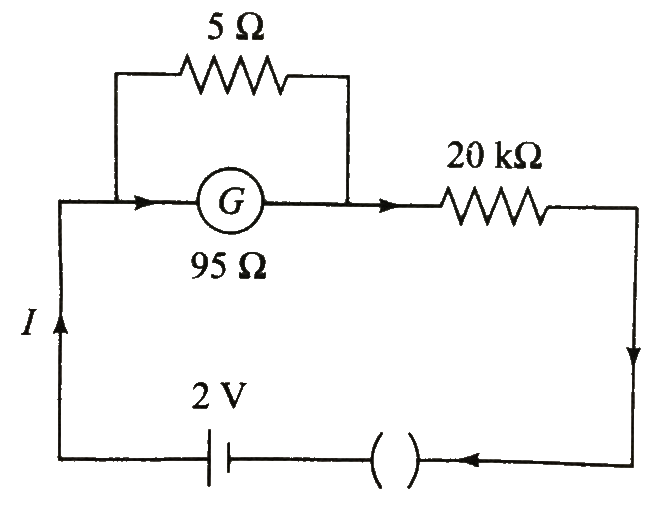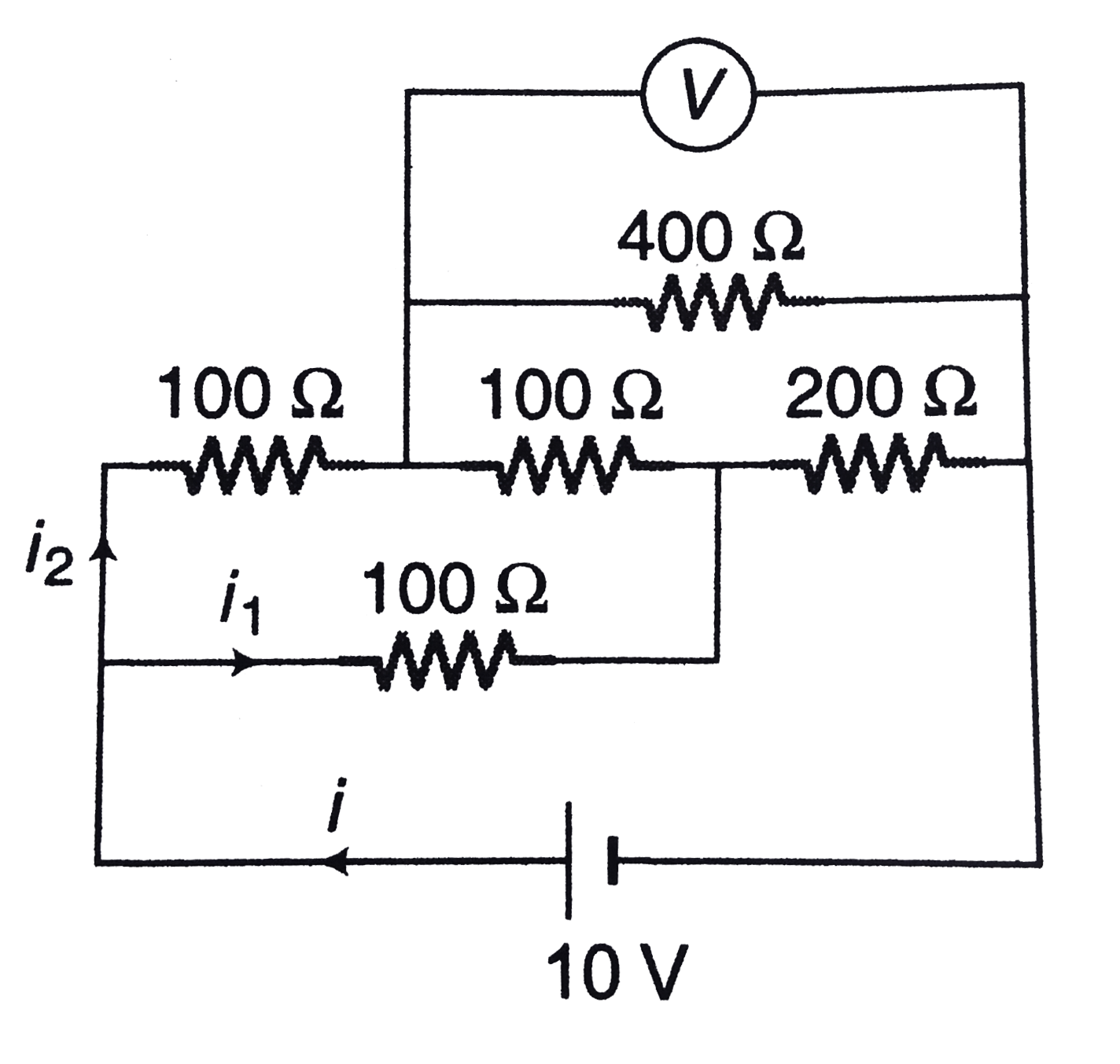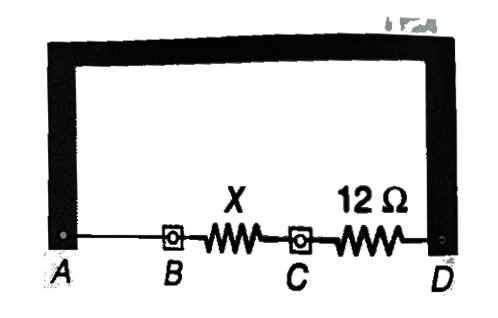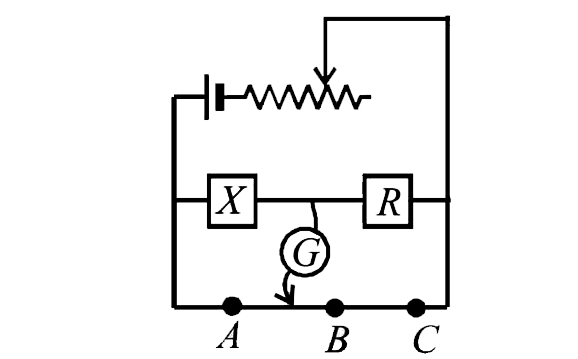Complete Solutions to Solved Examples of chapter ELECTRICAL MEASURING INSTRUMENTS of Class 12 book with complete answers and questions
| Class 12 | PHYSICS |
| Chapter | ELECTRICAL MEASURING INSTRUMENTS |
| CENGAGE PHYSICS | Solved Examples |
| Number Of Questions | 4 |
| Academic Year | 2023-24 |
A galvanometer of resistance `95 Omega`, shunted resistance of `5 Omega`, gives a deflection of `50` divisions when joined in series with a resistance of `20 k Omega` and a `2 V` accumulator. What is the current sensitivity of the galvanomter (in div`//mu A`)?

View SolutionAn electrical circuit is shown in figure. Calculate the potential difference across the resistor of `400 Omega` as will be measured by the voltmeter Vof resistance `400 Omega` either by applying Kirchhoff's rules or otherwise.

View SolutionA thin uniform wire `AB` of length `1 m`, an unknown resistance `X` and a resistance of `12 Omega` are connected by thick conducting strips, as shown in the figure. A battery and a galvanometer (with a sliding jockey connected to it) are also available. Connections are to be made to measure the unknown resistance `X`. Using the principle of Wheatstone bridge answer the following questions :
(a) Are there positive and negative terminals on the galvanometer?
(b) Copy the figure in your answer book and show the battery and the galvanometer (with jockey connect at appropriate points.
(c) After appropriate connections are made, it is found that no deflection takes place in th, from galvanometer when the sliding jockey touches the wire at a distance of `60 cm` from `A`. Obtain value of the resistance X.

View SolutionAn unknown resistance X is to be determined using resistances `R_1, R_2 or R_3`. Their corresponding null points are A, B and C. Find which of the above will give the most accurate reading and why?
 . `R= R_1 or R_2 or R_3`.
. `R= R_1 or R_2 or R_3`.
View Solution
Solved Examples questions and complete solutions for chapter ELECTRICAL MEASURING INSTRUMENTS of CENGAGE PHYSICS (ENGLISH) of Class 12